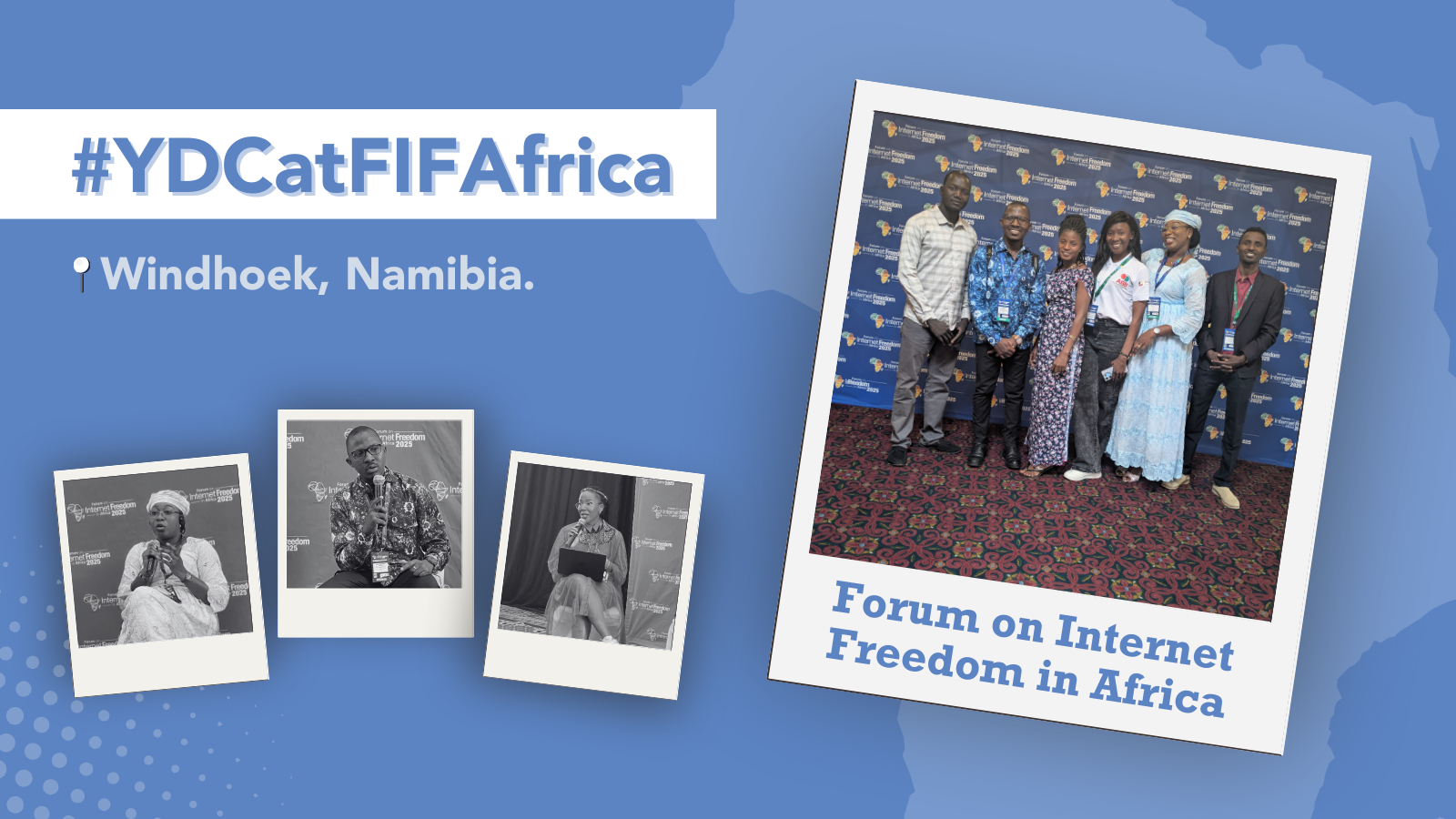
The Youth Democracy Cohort, through the Digitalise Youth project, aims to strengthen digital rights across Africa, advocating for the right to access information, freedom of expression, transparency, and resilience against disinformation and cybersecurity threats. In line with this commitment, the YDC participated in the Forum on Internet Freedom in Africa (FIFAfrica 2025) in Windhoek, Namibia, from 23 to 26 September, with six representatives from supported partner organisations engaged in the promotion of digital rights
The week was dedicated to empowering young activists to bring forward their policy recommendations towards the promotion of digital rights and share the challenges they face in their respective contexts. FIFAfrica provided a platform to bring together voices from across the continent and beyond to discuss critical issues at the intersection of technology, human rights, and governance.
Advocacy Training
The first day was dedicated to an Advocacy Training session moderated by Andrew Songa, EPD’s Regional Advisor on African Union Engagement. The training gathered representatives from six organisations supported by the YDC for digital rights projects, members of the Digitalise Youth consortium, local CSOs, and Namibian YDC members. The training kicked off with a presentation of the advocacy cycle, outlining its different steps and stakeholders as well as strategies for engaging with decision makers, and methods for building strong messaging.
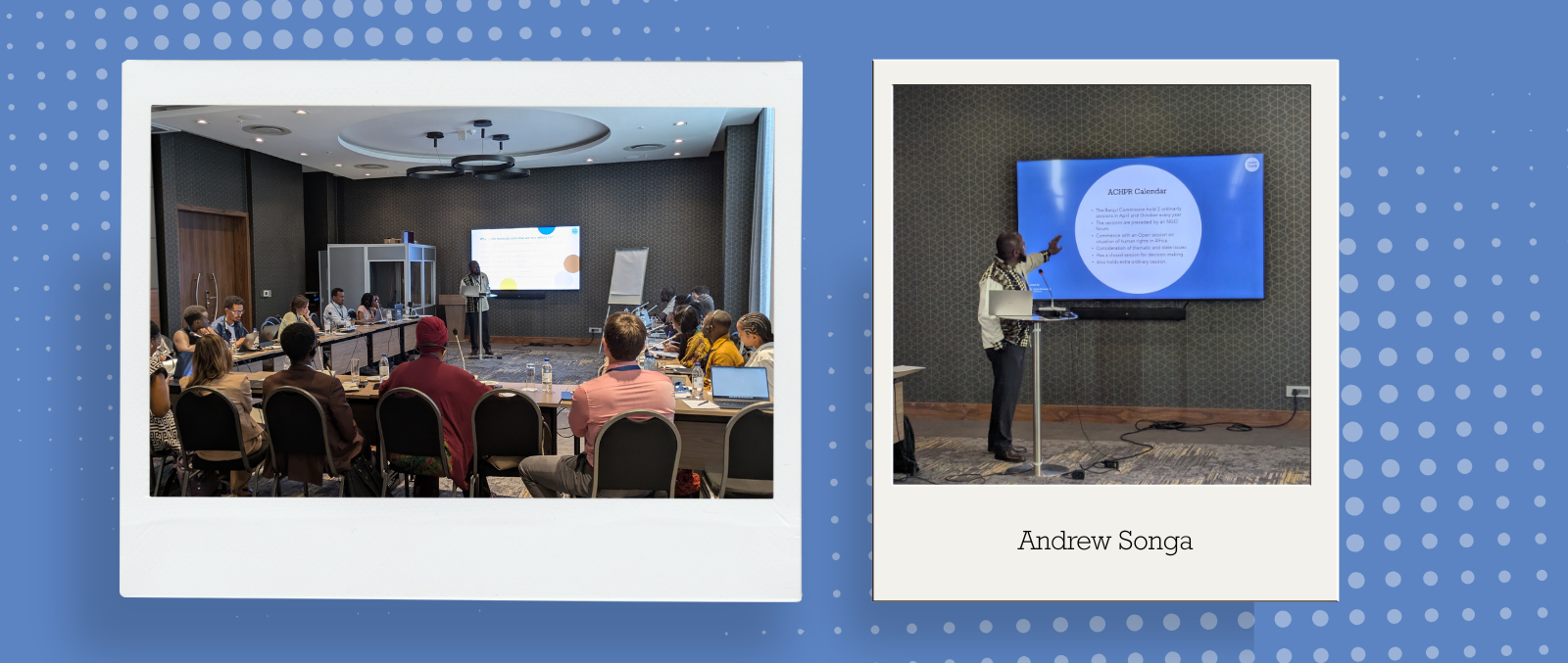
Understanding the African Human Rights framework
The session also focused on the African Human Rights framework, covering the structure and rights within the African Charter on Human and Peoples’ Rights and exploring the procedures and mandate of the African Commission on Human and Peoples’ Rights (ACHPR). Andrew Songa briefed participants on the practical ways CSOs can engage with the ACHPR, such as submitting shadow reports, participating in ACHPRs’ NGO forums, and obtaining observer status to deliver oral statements.
Putting theory into practice
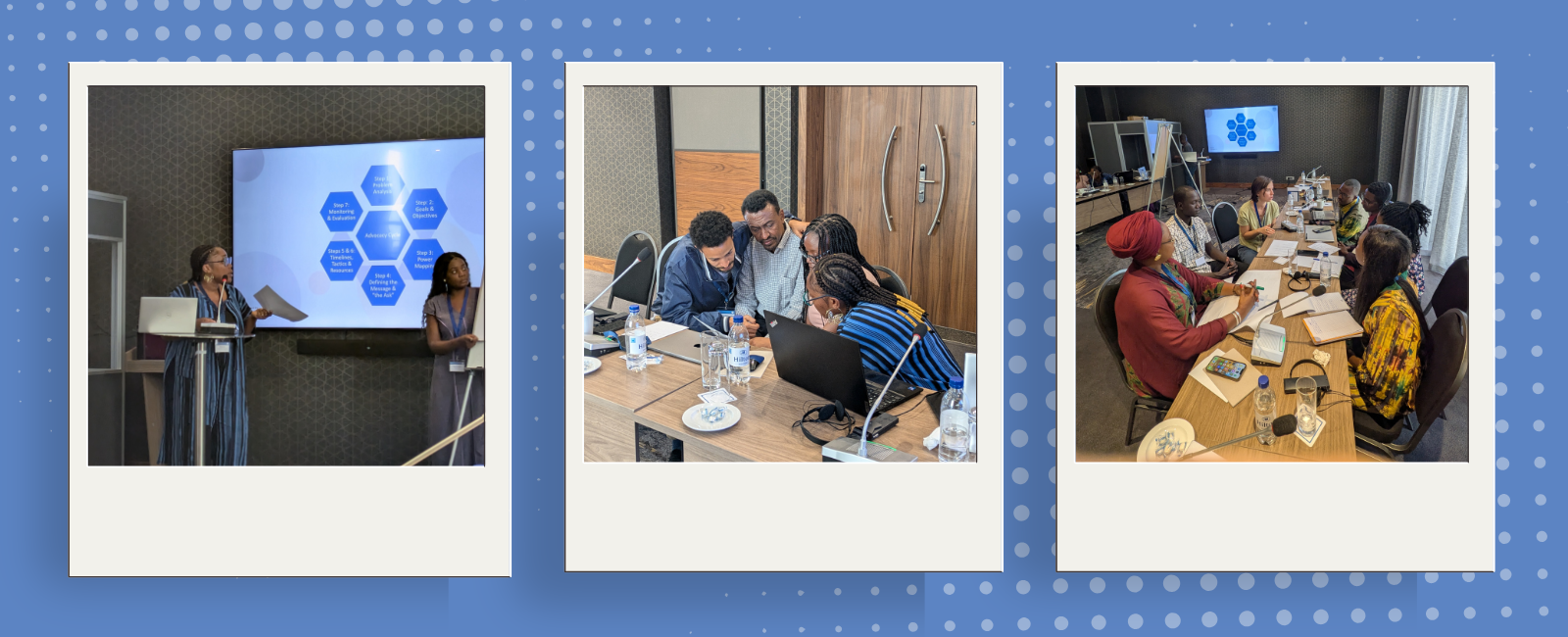
The participants applied this theoretical learning through two practical exercises: the first involving mapping the steps of the advocacy cycle for a specific case, and the second focused on developing recommendations and delivering an oral statement.
FIFAfrica Conference
From digital activists, to CSOs, government delegates, tech professionals and scholars, the forum gathered various stakeholders committed to advancing digital rights in Africa. The numerous sessions addressed topics such as AI, digital surveillance, governance, internet shutdowns, information integrity, digital democracy, ACHPR resolutions and litigation against big tech companies.
Panel: From Hashtags to Policy: Digital Rights & Youth Engagement for Open Civic Space
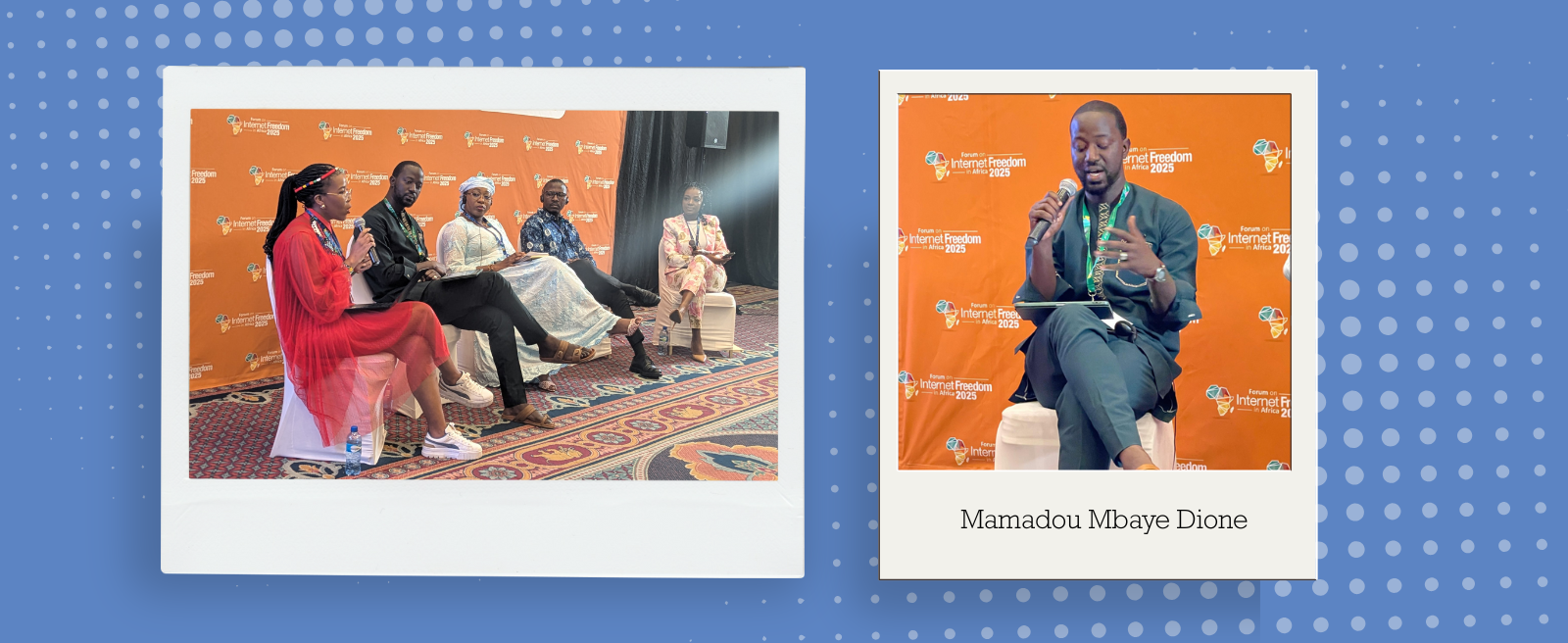
As part of the forum, the Youth Democracy Cohort organised a panel dedicated to youth digital activism and effective strategies to promote digital rights. The session featured a representative from Africtivistes specialised in youth digital activism, a media monitoring and information integrity expert from Code for Africa, a representative of the Association of Bloggers of Guinea (ABLOGUI) and a member of the Senegalese Association of Librarians, Documentalists and Archivists (ASBAD). Each speaker shared insights on the state of digital rights in their respective contexts outlining the achievements and challenges their organisations face in advancing digital rights.
“Young people have shown that digital technology is not just a tool, but a real lever for democracy.”
– Mamadou Mbaye Dione, AfricTivistes
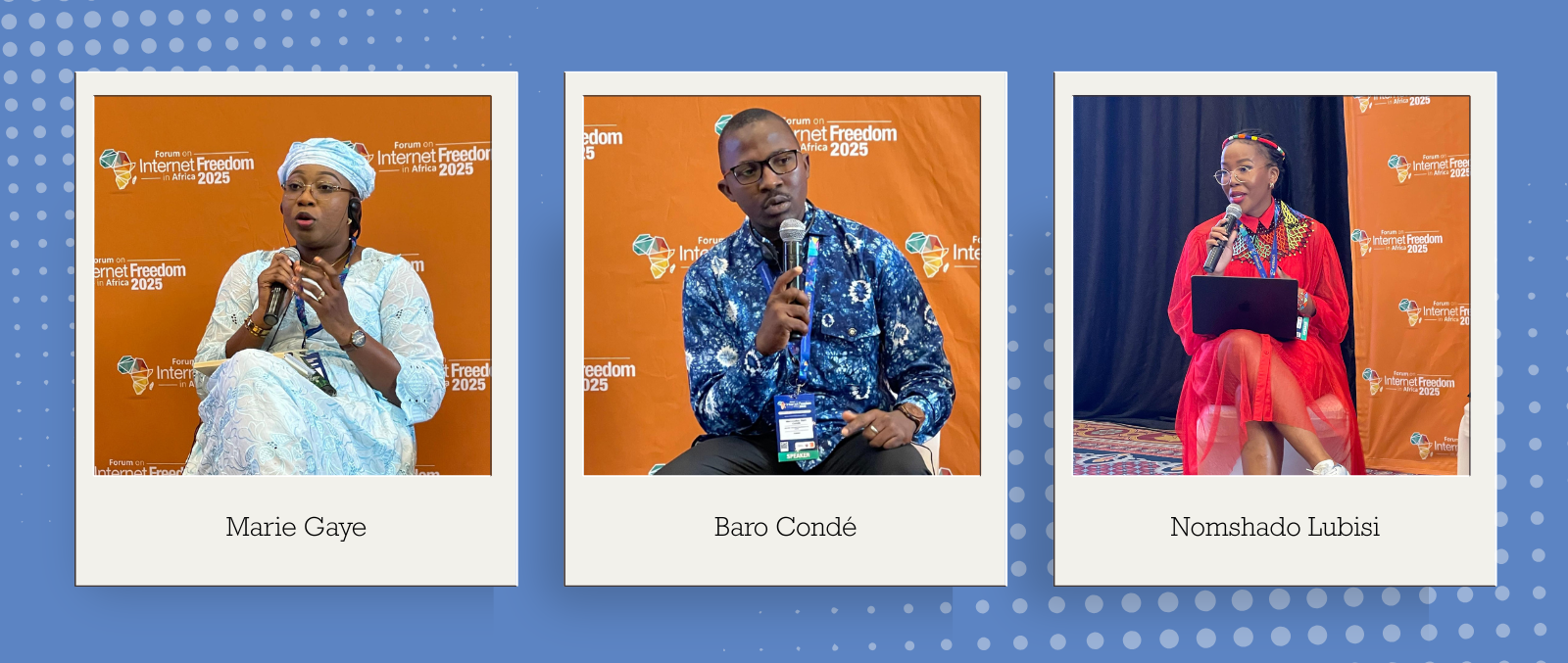
Nomshado Lubisi, representing Code for Africa, provided an analysis of the digitalisation of the Sahel region and the impact of new technologies on political participation. She presented technology as a ‘double-edged sword’ which has both created new opportunities to access information and to mobilise and empower youth while also being an environment conducive to the creation and spread of mis/disinformation.
Baro Condé, president of the Association of Bloggers of Guinea (ABLOGUI), highlighted his organisation’s significant contribution to strengthening digital rights: ABLOGUI successfully sued the Guinean government in the ECOWAS court for conducting intentional internet shutdowns during the 2020 elections, holding the state accountable for violating its regional, national and international obligations regarding the right to information.
Marie Gaye presented the Senegalese Association of Librarians, Documentalists and Archivists (ASBAD) and their ambition to reposition libraries as levers for citizen participation and as privileged places for access to verified and verifiable information
“Digital rights are not new, but rather an extension into the digital space of our fundamental rights, the right to information, freedom of expression and the right to privacy.”
– Baro Condé, ABLOGUI
The panel provided a platform for the speakers to present concrete recommendations to political actors, drawing on their experience and local realities. Proposals were aimed at creating a more open digital civic space and reinforcing digital rights at the local, national, and international levels.
Nomshado Lubisi (Code for Africa) called for a commitment to transparency and responsible digital engagement by promoting fact-based communication, actively countering disinformation, and supporting policies that protect civic space and the rights of youth to participate safely in online political discourse.
Baro Condé (ABLOGUI) emphasised the importance of involving young people in the development of public policies on digital rights, arguing it is essential for inclusive democracy in the Sahel.
Marie Gaye (ASBAD) pressed governments to ratify the African Union Malabo Convention on cybersecurity.
Mamadou Mbaye Dione (AfricTivistes) stated that technology must become a driver of citizen participation and transparency, arguing that digital tools should be prioritised to bridge the gap between citizens and politics.
